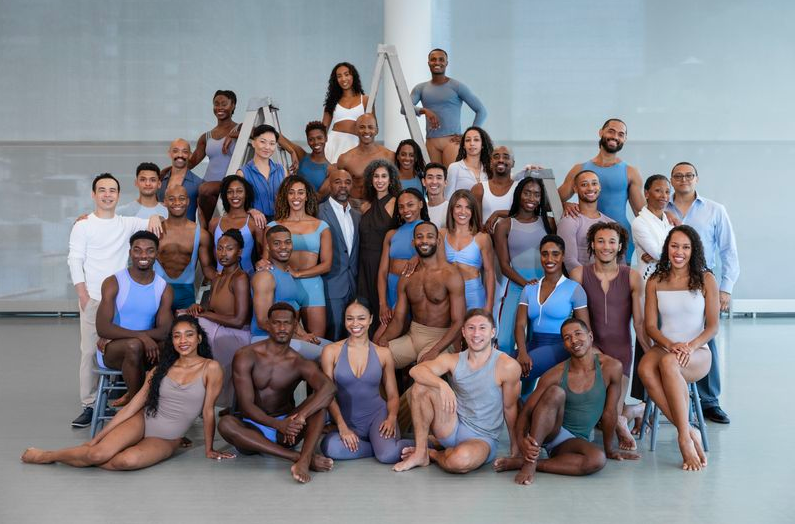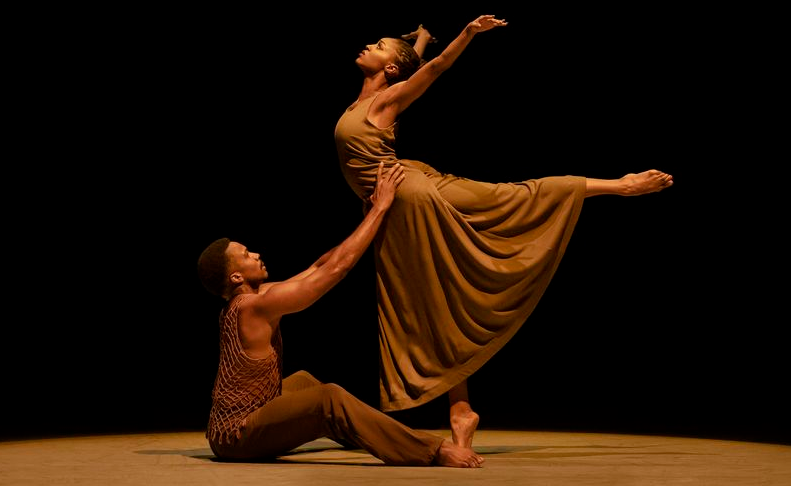[Black Filmmaker News]
Mati Diop: first Black female filmmaker to compete at Cannes Film Festival…
Photo: Facebook screenshot
Senagalese-Frenchwoman Mati Diop made film history at the Cannes Film Festival on Thursday…
On Thursday, 36-year-old Senegalese-Frenchwoman Mati Diop became the first Black female film director to ever compete in the 72-year history of the Cannes Film Festival.
Ms. Diop achieved the milestone when her film “Atlantics” premiered at Cannes, on Thursday. “Atlantics” is Diop’s feature film debut, it was released May 16, 2019.
Atlantics will be competing for Cannes’ top honor the “Palme d’Or.” This prestigious award, first given in 1955, has been won by a handful of American filmmakers. They are Delbert Mann, William Wyler, Martin Scorsese, Francis Ford Coppola, Bob Fosse, Steven Soderberg, David Lynch, Joel and Ethan Coen, Quentin Tarantino, Gus Van Sant, Michael Moore and Terrence Malick.
Diop was surprised when told that she was the first Black female filmmaker whose work was accepted by the Cannes Film Festival.
“I hadn’t realized myself. I didn’t know,” Diop said. “My first reaction is that I found it quite sad. I thought, ‘Oh, is it?’ So, there’s still a long way to go before it becomes something completely natural and normal and something that’s not noticeable, the fact that I’m a Black woman.”
Diop explained that the distinction was a bit confounding.
“What I realized, and I’m not used to this feeling, is that it happened to me,” Diop said “I’m not responsible for that. I haven’t done anything specific for that. I’ve just made the film I wanted to make. I’m not embarrassed. I’m not proud. I just take it as a pure fact.”
Mati Diop was born in Paris, on June 22, 1982. She is the daughter of distinguished Senegalese musician Wasis Diop and a French woman. Diop is also the niece of celebrated filmmaker Djibril Diop Mambeth, whose work influenced her. Her 2013 film, “One Thousand Suns,” was based on her famous uncle, and his 1972 film “Touki Bouki,” or, “The Journey of the Hyena.” Mambeth, who died at 53, from lung cancer, is regarded as one of the most exceptional African filmmakers.
Besides being a filmmaker and director, Diop is also an actress. In 2008, she played the lead role in the critically acclaimed, and award-winning film “35 Rums,” by filmmaker Claire Denis. Diop won a “Lighting Award,” and a “Close-Up On The Young Talents of Cinema Award,” for her starring role in “35 Rums.”
As an actress, Diop has appeared in eight films. Those films are: “35 Rums” (2008); “The Bodyguard” (2009); “Yoshido” (2010); “Sleepwalkers” (2010); “Bye Bye” (2011); “Another World” (2011); “Simon Killer” (2012); and “Fort Buchanan” (2014).
Diop has directed seven films. They are: “Last Night” (2004); “Atlantiques” (2010); Snow Canon (2011); “Big in Vietnam” (2012); “One Thousand Suns” (2013); “Liberian Boy” (2015) and “Atlantic” 2019.
Diop’s feature film “Atlantic” is an expansion of her earlier short film “Atlantiques,” from 2010. “Atlantic” deals with the topic of a young African man migrating by sea to Europe, because of the economic hardship he faces in Africa. Diop described her personal familiarity with this dire aspect of the immigration issue when she visited Senegal 10 years ago.
“I was myself a witness of the situation, quite a close witness,” Diop said. “It was 10 years ago that there was this whole wave of a young generation who were trying to flee. They went toward Spain and many of them disappeared. I needed to tell this story. I had already dealt with it in my short [“Atlantiques”] but I felt I wasn’t done with it.”
Diop’s directorial filmmaking approach in “Atlantic,” is being celebrated for her innovative mixing of fiction with documentary styles of storytelling.
“It was written as a fiction, but I don’t make this limit. I don’t think it’s our business as filmmakers to draw these limits between documentaries and fiction,” Diop said. “When you have the desire to make a film, you make a film. The reality that I described is so anchored in social and political and economic terms, of course there is a real texture and embodiment of the subject and my approach it in it that can be documentary-like.”
Diop recently explained why she makes the kind of films she does.
“As a Black woman I really missed Black figures and Black characters” Diop said. “It’s why I needed to make this film, I needed to see Black people on screen – it was an urgent need.”
“Atlantic” has been receiving rave reviews.
Julien Gester, and Luc Chessel, from the French newspaper Liberation, said of Diop “the Franco-Senegalese Mati Diop directed a stunning first feature, a fantastic evocation of a Dakar youth.” They add “Atlantic is a beautiful movie. To say exactly why and how it is is another matter, the very day of its first screening in Cannes in official selection and competition, with the maximum attention. But an impression persists: Atlantic shines under this great day with a flash as strong as that which it would glow in the middle of a deep night. Its light…illuminate everything else, including the Cannes Film Festival.”
Gester and Chessel finally praised Diop for “paying attention to simple gestures, rudimentary lighting effects and special effects as sober as the divorce of the voices and the beings, Atlantic opens on abysses of meditative depth at the place of each figure and of each place, of which it first records the materiality before visiting the multiple possible lives.”
Véronique Cauhapé, of the Le Monde newspaper, said “On the third day of the Festival, an ocean came to engulf and haunt the seaside Cannes. Atlantic fell with the force of a full moon tide. These are films that immediately mark the retina and occupy the mind long after touching it.” Cauhapé lauded Atlantic saying the “sheer beauty of a love story, the power of a political fable, the turmoil of a ghostly tale reunited in a single gesture, led by a vital impulse that has signature value. Mati Diop’s film was built on the time and intimacy of a journey.”
Diop said she hopes her groundbreaking achievement, with “Atlantics,” will open up opportunities for other Black female filmmakers. “When you feel your own little story meets the bigger story, the feeling is that it doesn’t belong to you, which is quite moving really” Diop said, “If for some young Black female film directors I can represent a new dynamic, I’m obviously extremely happy.”






